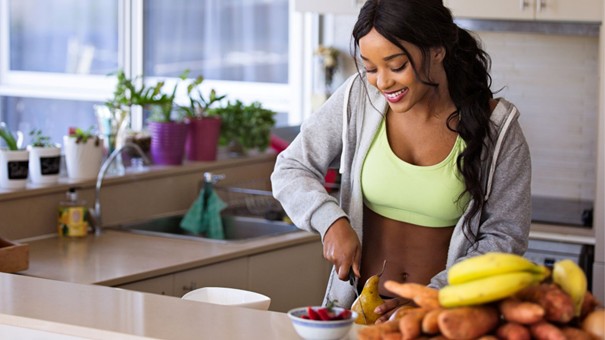How Your Lifestyle Shapes How You Feel Before Your Period
It’s that time again — the days before your period.
Your breasts feel sore, your mood swings from calm to chaos, and you just don’t feel like yourself.
You might wonder: Why does PMS hit me so much harder than others?
New research from 2024 shows that your lifestyle, particularly what you eat, how much you move, your weight and even how you sleep can deeply influence how intense you experience PMS.
What Science Tells Us
In a study of 369 medical students, Azadi et al. (2024) found that around 70% of participants experienced PMS, and the severity of their symptoms was strongly linked to:
- Body mass index (BMI)
- Dietary fat intake
- and overall lifestyle habits
Women with higher body fat or diets rich in unhealthy fats reported more intense symptoms — from bloating and irritability to fatigue and pain.
Why?
Excess fat tissue produces oestrogen, and too much of it disrupts hormonal balance.
When oestrogen levels rise relative to progesterone, PMS symptoms can worsen.
How Your Daily Habits Shape Your Hormonal Balance
Eat well
A wholefood, nutrient-rich diet helps stabilise hormones and reduce inflammation.
Experts recommend:
- plenty of fruit, vegetables, legumes, wholegrains, and omega-3s,
- less fat, sugar, salt, caffeine, and alcohol.
These foods support serotonin production, balance blood sugar, and can ease both physical and emotional PMS symptoms.
Move Your Body — Even a Little Helps
Regular exercise, especially aerobic movement like walking, cycling, or dancing, helps regulate your hormones naturally.
It lowers stress hormones such as cortisol and boosts endorphins — your body’s natural mood lifters.
Sleep and Stress Management
Lack of sleep and chronic stress disrupt the delicate relationship between oestrogen and progesterone.
Prioritising rest, mindfulness and relaxation techniques helps your body restore its rhythm.
Maintain a Healthy Weight
According to Azadi et al. (2024), every one-point increase in BMI raised the likelihood of PMS by roughly 7%.
Keeping your weight stable supports hormonal balance and reduces inflammation.
Small Shifts, Big Results
You don’t need perfection — just consistency.
Start with gentle, achievable habits:
- Eat breakfast to keep your blood sugar steady.
- Swap processed foods for colourful, fresh meals.
- Move your body every day, even if it is only for 20 minutes.
- Drink enough water — dehydration worsens headaches and bloating.
And most importantly: be kind to yourself.
PMS isn’t weakness — it’s your body’s way of asking for care and balance.
A Natural Helping Hand: Resilovit® PrePeriod
If lifestyle changes alone aren’t enough, targeted micronutrients can make a difference.
Resilovit® PrePeriod combines chasteberry (Vitex agnus castus), magnesium, vitamin B6, and antioxidants — a synergy proven to regulate hormonal activity and ease PMS symptoms naturally.
For calmer days — and a more balanced you. 🌸
FAQ – Lifestyle & PMS
Does exercise really help with PMS?
Yes! Regular movement reduces stress, improves mood, and relieves cramps and tension.
Can certain foods make PMS worse?
Yes. Diets high in fat, sugar or processed foods can intensify symptoms. Focus on whole, anti-inflammatory foods instead.
Does weight really matter?
It can. Higher body fat increases oestrogen production, which may worsen PMS.
Should I avoid caffeine before my period?
Yes — caffeine raises cortisol, which can amplify anxiety and breast tenderness.
